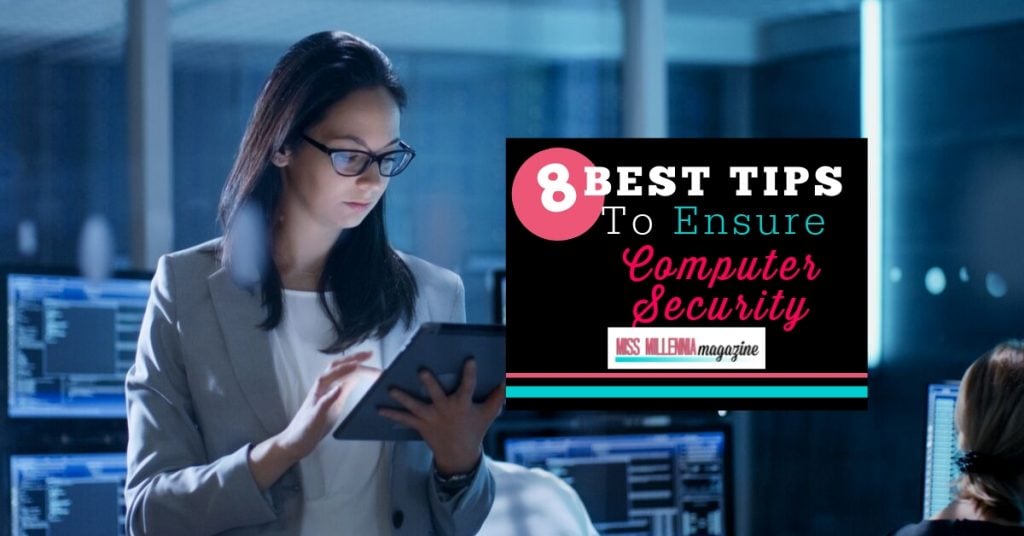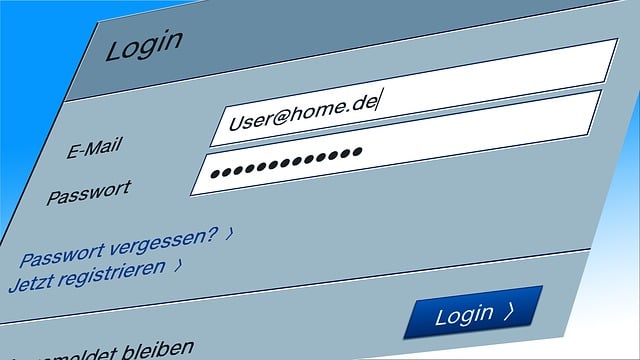8 Best Tips to Ensure Computer Security
Unfortunately, the threat of a data breach is increasing all of the time. This is not only something that businesses need to be concerned with but also individuals too. After all, if you do not take the correct steps in order to protect your personal data, you could end up with a cybercriminal breaching your PC and getting access to your bank account. With that being said, read on for lots of useful snippets of information to give you a helping hand.
Protecting from the threat of malware
Malware is actually an abbreviated term that means ‘malicious software.’ You may have heard of malware before, but you may be unsure as to what it is and how it impacts your computer. One thing is for sure; you need to invest in antivirus software to ensure malware does not infect your PC. But first, read on to discover more about it.
The main reason why anti-virus software is required is to prevent malware. A lot of people believe that this is a type of virus, however, malware is an umbrella term that is used to describe a wide scope of harmful software, such as worms, true viruses, keyloggers, and spyware. Malware has been designed so that it can gain access to your computer without your knowledge. There are many different reasons why someone may create malware, from destroying a rival company’s computer system to trying to extract your personal details for profit gains. In most cases, the latter applies. Common examples of malware that has been created for profit include ransomware, which is to extort money, spreading email spam, spyware, which styles sensitive information, and adware, which is created for profit through the means of forced advertisement. All types of malware are dangerous, and can potentially result in financial loss. The best way to protect yourself is to be cautious when you are using the Internet. Do not open emails when you do not know the sender and stay away from any websites that are flagged as suspicious. Most importantly, download a quality antivirus and make sure you update it on a regular basis.
No computer is immune to the threat of malware, and thus you need to do all in your power to protect yours and your personal information. If you do not have antivirus software in place, now is the time to download it.
Update your computer regularly and fix any problems
Another important step to take when it comes to your computer is ensuring that you keep it up-to-date all of the time and that you fix any problems. You can see the different quick fixes that you can make for more information about this.
One of the biggest mistakes people make is not updating software regularly. This is a problem because most software updates are released in order to fix security vulnerabilities that have been found. Therefore, if you do not update your software, this means that there is a computer security issue, which a cybercriminal could easily exploit.
Instead, you need to make sure that you set your computer so that all updates are run automatically so that you do not forget to do this.
Use your mobile device safely
When you think about how much we rely on mobile devices today, it is not hard to see why you need to do everything in your manner to ensure that your devices are protected. This is something that a lot of people overlook, yet when you consider the fact that your mobile phone is going to be accessed just as much, if not more so, than your computer, you see why this is a critical part of your online security. So, what are some of the different steps that you should take? This includes the following…
- Back up your data
- Use the Android Device Manager or Find my iPhone tools to help prevent theft or loss
- A lot of handled devices of capable of employing data encryption – if this is available, you should definitely make the most of it
- Do not store personal information or transmit personal information on your mobile device
- Do not click on attachments or links from unsolicited texts or emails
- Keep your device’s operating system up-to-date
- Only install apps that have come from trusted sources
- Lock your device with a password or PIN – make sure it is never left unprotected in public
Don’t believe the myths – Mac computers need antivirus
Much is said regarding how secure Mac OS is and there’s no doubt it is among the very safest operating platforms. But, does this mean it’s totally invulnerable to all security risks? Unfortunately not, it is just one of the most popular myths and misconceptions surrounding the need for antivirus Mac software.
Among the most prevalent myths is that Macs do not get viruses and are virus-proof by their very nature because of the first-class internal security systems of Apple computers. However, malware created specifically for Mac OS will undermine your systems internal protection. The Elk Cloner was the initial virus targeting Apple DOS 3.3 found in 2006. Self-replicating malware and spyware can also be difficulties that Mac users face. Another myth is that antivirus for Mac computers is worthless because there are so few risks facing the Mac environment. It’s a fact there are built-in and add on elements which help prevent malware on Mac OS X. However, there are several malware programs, like DNSChanger and MacDefender, that mostly strike Mac users, and they are a good reason to have Mac antivirus software. The reason malware writers make malware is for profit. There tend to be more Windows-based computers in the marketplace than others, also it’s the conventional OS for many businesses and banks. This brings more writers to the Windows OS. Nevertheless, the rising share of Macs in the marketplace and the growing interest in Macs by many companies means that Mac-based malware is raising as well.
Practice good password management
We all have a huge amount of passwords to manage, which makes it very tempting and easy to take short-cuts, for example, using the same password again. This is why it is a good idea to use a password management program, which can help you in terms of maintaining strong and unique passwords for all of your accounts. These programs are designed to create strong passwords for you. They will remind you whenever you need to update your passwords as well.
There are a number of different tips to keep in mind when it comes to maintaining strong and secure passwords. You should update your passwords periodically. At a very minimum, your passwords should be updated a minimum of once every six months. You should also make sure you do not write your passwords down and do not share them with anyone either. Aside from this, using a strong mixture of characters is important, and you should never use the same password for different websites. This is important because if you were to use the same password, once someone has access to one of your accounts, they effectively have access to all of them. You should also make sure you use long passwords. Using 20 characters or more comes highly recommended.
Avoid phishing scams
It is also important to educate yourself when it comes to phishing scams. You need to know what suspicious phone calls and emails are like so that you do not fall victim to them. Phishing scams are a continual threat, using different types of social engineering ploys to try and tempt you into giving away your private information. Cybercriminals know how to use sophisticated techniques to get personal data from people. A lot of people assume that they would never be ‘silly’ enough to fall victim to something like this. However, scammers are very experienced and they know how to sound convincing and how to craft emails that appear as they have come from a professional company or organization. Most phishing scams do tend to be carried out by email. However, it is not uncommon for them to occur via text, phone, or even social networking sites. You need to be suspicious of any email messages or phone calls that look official yet ask for financial or personal information.
So there you have it: some of the different computer security tips that you can follow in order to have peace of mind and give yourself the best possible level of personal data protection.
Other Related Articles:
- WHAT SECURITY DO YOU NEED FOR SAFE MONEY TRANSFERS?
- MILLENNIALS AND TECHNOLOGY: HOW DO MILLENNIALS INVEST?
- IS THE MOST DOWNLOADED APP ON THE APP STORE ACTUALLY DANGEROUS?
- TOP TIPS FOR BECOMING SUCCESSFUL AS A MILLENNIAL ENTREPRENEUR
- MILLENNIALS AND CRYPTOCURRENCY: HOW THIS IS A MATCH MADE IN HEAVEN











